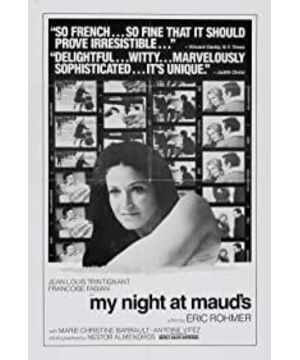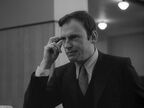One night at Mude's house a few years ago, Mude and Mude talked about religious morals and feelings all night. Mude teased him several times, and he was already swaying, but he was able to break free from the beauty's arms at the last moment. As Mude mocked, morality made Louis an important criterion for measuring words and deeds, which was his "face". But on the beach a few years later, he suddenly abandoned these and told a white lie: he was once not so pure.
Even in the one night at Mude's house, the interaction between Louis and Mude (ambiguity and debate) had penetrated into the core of morality, and Mude repeatedly pointed out the absurdity of Louis' moral concept, but he was still stubborn. On the beach a few years later, he let go of his moral shackles, understood and sympathized with his wife's past, allowed her to make mistakes, and allowed himself to be a person who made mistakes. In this way, his happy family is also preserved.
I think of a friend who is very talented and a young talent. During a certain banquet, everyone talked about a strange person who often attended events to refute other people's views, but did not understand the real meaning of others. I explained that this person had been persecuted in his early years and had some social barriers. Compared to the previous two years, it is already a lot better. However, my friend said that this cannot be used as an excuse. In any case, this (disrupting normal and legitimate conversation and discussion) is unforgivable.
I kept silent. I understand that any further talk is futile and only adds new friction. Some things, like that night at Mude's house, may not be immediate even if you do enough homework. Some truths are bound to emerge only after years of baptism. Allow others to make mistakes, and allow yourself to make mistakes, and it is possible to let the problem have an exit. And the epiphany must have happened sometime in the distant future. Anyway, that's something to look forward to.
View more about My Night at Maud's reviews










